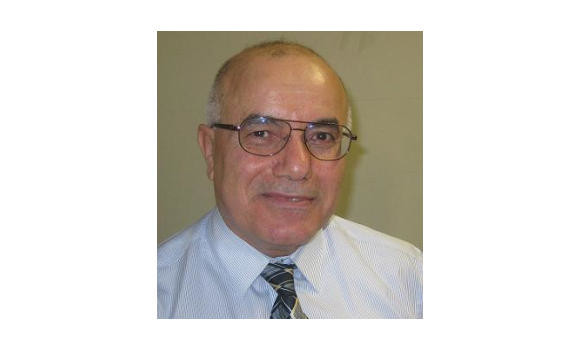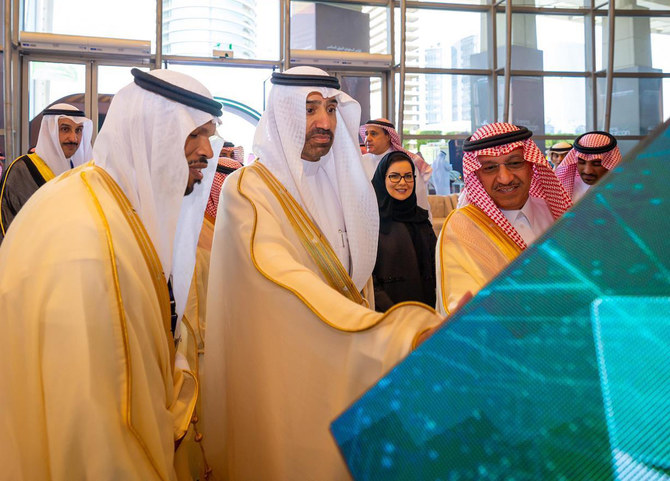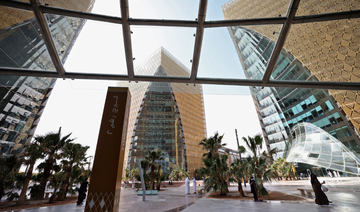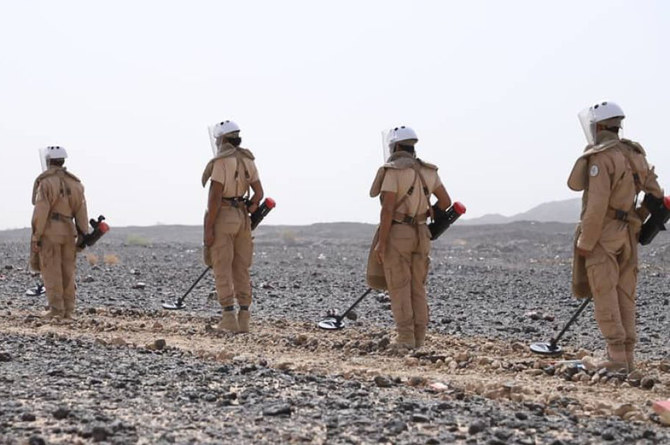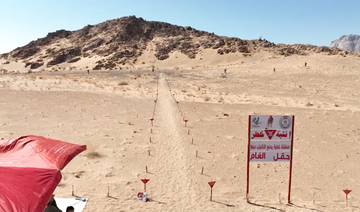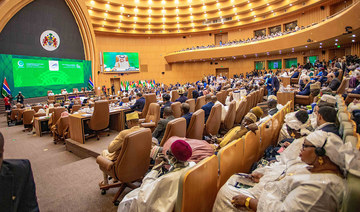In a world dominated to a great extent by media institutions, where media becomes a battle front, it is necessary to explore how the media operates, with what goals, and how it influences society. In an interview with Arwa Al-Rikabi of Arab News, Leon Barkho who is a prominent scholar, spoke on this issue. As the manager of the Media Effects and Practices Program at Sweden’s Jönköping University as well as someone who was a media person for years before that, Barkho provides an informed assessment of the media and its effects. He is also a longtime opinion writer for the Arabic newspaper Al-Eqtisadiya, where he tackles various important but often overlooked issues. His book “News from the BBC, CNN, and Al-Jazeera: How the three broadcasters cover the Middle East” offers valuable insight into how the more powerful in society shape our views of the world through discourse and media. He reveals how BBC, CNN, and Al-Jazeera use cultural and religious signs to identify the benign and malignant in the Palestinian-Israeli struggle and the Iraq invasion.
What got you interested in studying media practices and effects?
“Media is an important topic in Sweden. Media studies are conducted at its 45 universities and numerous media-related institutions. I have a lot of interest in the media but more specifically the impact it has on the society at large. Media practices and effects were one of the major topics of my Ph.D. When I finished the dissertation and made it available electronically in Swedish libraries, it immediately drew massive attention from the media and the scholarly community because it showed in practical terms how language can be manipulated to shape communicative events not as they are but as institutions or media organizations want them to be. It demonstrated that in the case of the struggle between Palestine and Israel, the war in Iraq and the conflict in Chechnya there is no news medium, which tells it as it is. A Swedish philanthropist got interested in my work and donated nearly one million dollars (almost SR 3,800,000) to start a center to conduct research specifically on media effects and practices. The center is growing; it has an international academic journal now and the future looks bright.”
What are your goals and achievements for your Media Content Practices and Effects Program?
“We now have two very important books in press. The first lays down a new discourse (language) theory for impartiality in news and current affairs. The second applies the theory by examining major crises and conflicts. Renowned communication and journalism scholars contributed to this second book. We also issue an influential journal, the Journal of Applied Journalism and Media Studies.
“The center is actively involved in the teaching of communication, media and journalism at the university. Our goal now is to recruit a few Ph.D. students to carry advanced research based on the discourse theory the center is developing. The theory basically supplements the media effects and practices of my thesis which has already been developed into a book that came out a year and half ago in the US and is being used as a textbook at many places.”
How would you describe Arab media in general? Is there a common thread of thought that is reinforced?
“I follow Arab media, particularly the most influential newspapers and news broadcasters. As a media scholar I am sad to say there is little to be proud of about the Arab media. The major problem facing Arab media is independence. If you are not independent you cannot produce impartial discourse. The coverage of the so-called Arab Spring has demonstrated this. It is so one-sided, partial and skewed that sometimes one is ashamed to be associated with it. It has become more sectarian than the simple and ordinary audiences on the street. It is disappointing to see major media that had established a name on the international scene, toeing the line of their financial sponsors. Some of the major media have dropped basic standards of vetting and verification to the extent one can no longer distinguish between amateur and professional content. The Arab Spring seems to have destroyed even big names like Al-Jazeera and Al-Arabia.”
How would you assess the role of Arab media in shaping the Arab consciousness in the last decade?
“Arab consciousness has been shaped ages ago. Arab consciousness is rooted in history and religion. The media, instead of changing blind adherence to the past and introducing new concepts and notions for the creation of civil and democratic societies, it is now reinforcing centuries-old divisions. For instance, one would have loved to see major Arab media, at least, enlightening people about the role of religion and that religious beliefs should not be kidnapped by clerics and that interpretations by these clerics should not be viewed in the same holy framework of the Holy Book. What we see now is the triumph of clerics and sectarian thinking over not only Arab consciousness but also the holy text, i.e. the Qur’an.”
American philosopher Noam Chomsky talked about the (concision) concept in TV where content is structured to limit discussion to brief thoughts or “sound bites” that fit between ads. What do you think are the implications of this for real intellectual debate or deep treatment of issues in general?
LB: “In his concision theory Chomsky has Western and specifically American media in mind. So far, research to operationalize the theory has proved Chomsky right. It is not only that content is structured into frames and brief thoughts. Content is becoming binary and dualistic. It represents our world in a way that divides it into binary categorizations of good/evil, positive/negative, benign/malignant and white/black. Language shapes actions and is shaped by them. The media take white/black categorization for granted. If you are powerful (a superpower) you have the right to posses thousands of nuclear warheads and at the same deny others even the thought of having a peaceful nuclear program. We can apply this to human rights. You make a lot of fuss about human rights violations in this region but turn a blind eye if they happen in another region because the latter are your friends. Intellectual debate in the media is timid. It generally accepts the binary concept I have outlined. The implications are we live in a world in which double standards and hypocrisy have become so overwhelming.”
How would you evaluate the quality of entertainment in Arab media, specifically Gulf media?
“I am not a fan of entertainment but my wife is almost addicted to Arab entertainment channels. It seems Arabs are given to entertainment and from my own readings of Arabic literature, particularly the classical genre, Arabs have some of the world’s greatest writers whose main target was to cheer up their readers and entertain them. But that was very serious entertainment. It was real literature and not sub-literature like the writings of Hamadani and Al-Jahidh.
“My fear is that most of what I see is not that serious, it does not have a message to deliver, it is not meant to educate. Of course one of the basic tasks of the media is to entertain, but to entertain does not mean to be shallow.”
Many intellectuals have said that the media revolution, from TV to the Internet, has impacted the way people get information and process it. Knowledge has become trivialized and turned into sound bites for consumption as opposed to an integrated cumulative process. What do you think of this description? Do you see the effects of this on young people?
“This is absolutely right. Even my students in Sweden, a country with one of the world’s most advanced educational systems, often view the world in terms of bites and frames, most of them based on media systems that are prevalent here. To combat this, our center has introduced the topic of “media systems” into the training of journalists. The idea is to make them aware of what systems can do to change perceptions and make audiences see the communicative event or even the world from the point of view of a frame or a bite. For instance, the media deal with sound bites and frames when reporting events in the Arab and Muslim world. This has made people see Islam, a cosmopolitan religion embracing different nations, sects and denominations, in terms of these bites and frames.”
The political environment in the Arab region nowadays is a dangerous one. What do you believe should be the media’s role in navigating through these times? How near or far are they in reality from this aspired role?
“The Arab media has become part of the story. It is involved in the conflict. If you listen, read or watch the media you would think that the anchors, the writers, the journalists are the insurgents or the rebels or whatever. The Arab media, unfortunately, has itself become very dangerous. It has become ostensibly skewed even in news and current affairs. For some media the line that separates opinion from fact or news has become so blurred that one may not be able to differentiate between opinion and news. The coverage of the uprisings in the Arab world particularly by major media is partial. You no longer need to be a critical analyst to be aware of it.”
How would you evaluate Muslim efforts to improve their image in the West?
LB: “Who are the Muslims? Who represent the Muslims? For the West they are mainly the Arabs, who in reality are less than one fifth of Muslim population in the world. There are probably as many Muslims in India as the Arab Muslim population. But the image here in the West is that the Arabs represent the Muslim world. As you know there are centuries of antagonism and mistrust between the Arab world and the West, starting from the time of the Crusaders. The Arab world is not homogeneous. It is disparate and divided. Therefore, there are no unified or joint efforts to change the stereotypes and prejudices the West has about Muslims because there is no strategy on the part of the Arabs.”
We have all heard and read American intellectuals and writers talking about “winning the hearts and minds” of Muslims. So far, how successful do you think this effort was?
“Winning hearts and minds becomes an issue when individual liberties count and civil and democratic governments reign. Muslim nations are economically weak. The West, despite the problems it faces now, still leads the world. Personally, I do not think the West cares about winning the hearts and minds of Muslims. They say it, but do not mean it. You do not win hearts and minds then you invade Muslim countries. You cannot win hearts and minds and turn a blind eye to more than 60 years of occupation of Palestinian land and millions of its people. The West will only care about Muslim hearts and minds when Muslims and Arabs think of themselves as valuable human beings, as valuable as Westerners. Then and only then the West will seriously consider winning their hearts and minds.”
Some people are hardly convinced that the media has a powerful effect on individuals and masses in terms of creating enemies or allies or on normalizing certain ideas and vilifying others. As an expert in this field, how would you address this attitude?
“This is a misperception. The media are a weapon and a lethal weapon. For the Israelis, and from my own investigations of their media and visits, the media are a real battlefront. They pay as much attention to the media as they do their armed forces.
“Communication, in the form of language and discourse, always comes before action. We know ourselves and others not only through actions but through communication actions and language, which precede, accompany and follow our actions.”
Many observers and experts (including Western ones) believe the western model of development and growth has proved disastrous. Gulf countries don’t seem to acknowledge this. What could be a way toward a more independent approach?
“Yes, the discourse here is much focused now on the disasters this Western model is causing and it is going to cause. There are real fears here about the future and whether the welfare state model is sustainable. I believe the disaster is already there. It has hit Greece severely as well as Spain and is spreading. Many people here, among them intellectuals, are talking about it openly. In the Gulf, things are different. You have first to look at the demographic compositions of Gulf states. So many things there are structurally flawed to the extent that I am hesitant to give you concrete examples. Not only the Gulf countries but also Arab countries in general, and perhaps because of Western colonialism and its legacy, see the West as a role model. Western states no longer see themselves in that way. I am afraid that the Gulf states are living in a state of oblivion or denial. For them the West has been almost everything. The West is extremely keen to keep conditions as they are in the Gulf. The Gulf is happy about this, but this is wrong. There are so many things in the Gulf that need to be revised and changed. Not only the Western model is on the brink of disaster. The Gulf model cannot be sustained at all. I refer to this frequently in my Arabic writings, but it seems that it is extremely hard to make the decision-makers reconsider entrenched positions.
There is an increasing trend in Gulf countries toward international schools that teach mainly in English. How do you see this trend in the context of the state of education in the Gulf? What are the benefits and possible repercussions in your opinion?
“I have made my position crystal clear in my Arabic opinion articles about this point. Reliance on the English language at the expense of the national tongue is a point of weakness and a harbinger of disaster. If you cannot have education in your national language, you are not a nation. If there are 15 foreigners for every national in a country, it is no longer a sovereign country. The Gulf states have failed to domesticate industry, technology and agriculture. It never occurred to me as someone with an interest in Arab and Muslim affairs that these countries would also fail to domesticate their national language. Instead of genuine education based on their national tongue and domesticated industries, markets and sectors, the Gulf states are developing pigeon languages and at the same time “pigeon” economic sectors with no national identity.”


